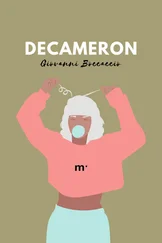Elsie thought she would approach the man to set her mind at ease. Yet what would she say? If he were her father or grandfather, he would not take kindly to her suspicions that he was someone else — someone who had no business taking the little girl by the hand and leading her away.
Elsie didn’t know what to do, except to follow — to keep her distance, but to trail the man and the little girl. This she did for a minute or so, until the man and girl left the store and moved out onto the mall concourse.
Now Elsie thought that perhaps the best thing to do to assuage her fears was to go back to the spot in the store where the little girl had been and see if there was someone in the vicinity who was looking for a lost girl.
Yet this was supposing the worst. It was supposing something Elsie could scarcely bring herself to think. And there was a problem with this course of action: if the child was — she would make herself think it because the gravity of the situation required her courage — if the child was, in fact, being abducted by the man in the wet trench coat, though it was all well and good that the mother should be informed, what a terrible risk she would be taking in allowing the man and the girl out of her sight. Would she be able to catch up with them? What if they disappeared into the crowd of rainy-day shoppers and couldn’t be found again?
Elsie decided that she must continue to follow. She would follow. She would watch to see where the man went. She would seek out someone who could help her. She wished she wasn’t new to this town. At the shopping center she frequented in Muncie she was always bumping into people she knew. Perhaps she would get lucky and chance upon a security guard. There had to be security guards in a mall like this.
The man and little girl passed a gift shop, then a men’s clothing store. The man didn’t look at the display windows. He didn’t look at any of the passing shoppers. He walked briskly, and the little girl had to trot to keep up with him. She dropped her bag of candy. He stopped and picked it up for her. Elsie hadn’t had a chance to study the girl’s face until now, and with the face now turned slightly in her direction, she saw something that greatly disturbed her. The little girl looked frightened. She looked confused. The little girl held tight to her rescued bag of candy with her right hand; her left remained within the tight clasp of the stranger’s hand. Elsie’s heart skipped a beat. The little girl was being kidnapped. Elsie was sure of it now. Something inside her made her want to point and shout to enlist the assistance of everyone around her to stop him. But how would she make her accusation? What words would she use? Elsie was paralyzed even as her feet kept moving.
A moment later she caught sight of a pay phone out of the corner of her eye. It was affixed to a wall down a small corridor off the concourse. She could call the police. This is what Elsie could do. She would have to take her eyes off the man and the girl for a brief moment. It would be risky; there was the chance she might lose sight of them. And how would the police, once they arrived, find the man and the girl? The mall was large, the parking lot even larger, and the lot was now dark under a cover of heavy rain, its mercury vapor lamps doing little but casting an eerie glow over the great expanse of empty, parked cars. Even if she dared to make the call, there was a teenaged girl on the phone. How long would it take to convince this girl of the magnitude of her emergency? How much time would Elsie lose in wresting the phone from the chatty girl? Elsie abandoned this idea.
The three were approaching the mall’s center court now. There was a circular fountain there. Hanging from the ceiling was a large silver-colored revolving mobile. The man and girl moved quickly through the center court, headed toward the nearest exit. Elsie felt the words rising in her throat: “Stop that man!” She felt the words fly from her mouth: “That man! Don’t let that man get away!” She pointed at the man just as he was passing a group of adolescents splashing each other at the fountain. Those who noticed observed a troubled woman pointing in the direction of clowning, misbehaving teenagers. Was she warning them against the possibility of falling in? Was she scolding them for their bad behavior? One could only guess, because the words of her desperate plea were swallowed up in the acoustics of the large space, their clarity erased by the echoic hum and thrum of the song playing over the mall’s loud speakers: “The Candy Man,” sung by Sammy Davis Jr., recipient of nearly constant airplay that month.
Elsie couldn’t hear the song’s words. She couldn’t even hear her own voice, although there was someone who did: the candy man. He stopped. He turned and gave her a hard stare — stared at the woman who was not in fact dressing down the playful kids at the fountain — the woman who had the audacity to try to call attention to him.
For a tense moment, Elsie and the man traded cold, freighted looks. Elsie prayed that the man would simply let go of the little girl’s hand and run away.
Yet he did not.
There erupted now an expression of angry defiance upon his hard face. Without taking his eyes off Elsie, he yanked the little girl toward him, wrenching her tiny wrist, her eyes wild with terror. She dropped her bag of candy, some of the pieces scattering upon the tiled floor of the center court. Elsie couldn’t hear the little girl’s cry but she could see the fear in her face.
Now the man was running. He was running as the crying girl tripped and stumbled behind him, still a prisoner to the fate he had chosen for her. Elsie began to run, too.
A salesman was standing outside of Florsheim Shoes on the concourse, smoking a cigarette. This man was watching the other man tearing through the mall’s center court, nearly dragging a little girl behind him. He was watching Elsie chasing after the two of them. His gaze caught hers.
“Help me,” she mouthed.
The man ran inside and directed one of the other salesmen to call security. Then he raced out of the store.
The abductor was near one of the doors to the parking lot now. The rain was coming down in wimpling sheets, rattling its glass pane. The abductor pushed the door open. The wind seized the door and slammed it shut again. The man fought against the wind with one hand and against the struggles of the little girl with his other hand. Elsie reached the man. She threw herself upon him, maniacal, hating him for what he sought to do, hating him as well for what he had put her through. The man fended her blows. He dropped the hand of the little girl, who started to run away, but was caught by the Florsheim shoe salesman.
The abductor pushed Elsie away from him. She stumbled backward. He shoved the door open with both hands and went out. Elsie watched as he disappeared into the billowing blankets of rain. A flash of lightning gave Elsie her final glimpse of the man — less a man now than something umbral and hulking and monstrous scuttling between the cars. She turned back to the shoe salesman. “Go after him. Stop him.”
The salesman shook his head. “Catch in my knee,” he said, rubbing his right kneecap. The girl was next to him. The shoe salesman wasn’t holding her hand but she stood close to him. The girl seemed to know that both he and the older woman coming toward her were there to help her. Still, she wept hysterical tears. The girl allowed Elsie to reach down and embrace her, lovingly, protectively.
“Security’s on its way,” said the salesman, glancing over his shoulder.
“They won’t find him,” said Elsie above the sound of the little girl’s sobs.
Sammy Davis Jr. was singing about separating the sorrow and collecting up all the cream. The shoe salesman, a young man with long black sideburns and a modified Afro, led Elsie and the little girl, from whom was coaxed the name Lucinda, back to his store. Across the center court, the robustious kids had retrieved the bag of candy from the floor. They passed it back and forth, chewing the soft caramels inside.
Читать дальше












